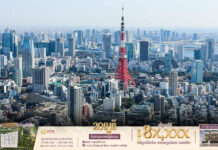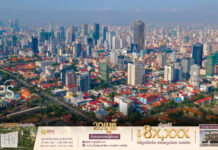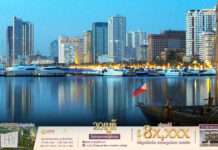In Asia’s real estate markets, the appeal of Singapore has increased markedly since the eruption of the Covid-19 pandemic. The results of a survey of investors in the region published by CBRE last month revealed that it was Asia’s third most popular destination for cross-border investment after Tokyo and Shanghai.
Long-standing advantages – political stability, business-friendly policies and the transparency, good infrastructure and access to capital that underpin Singapore’s status as a regional financial hub – are being accentuated by the government’s pragmatic approach to managing the pandemic.
As the global economy reopens and the combination of mass vaccination, therapeutics and prior infection allows countries to begin treating the virus as endemic, Singapore is moving with the times. The government’s decision last June to eschew its zero-Covid stance in favour of learning to live with the virus has bolstered Singapore’s credentials as an international financial centre.
Hong Kong, on the other hand, is doubling down on a futile zero-tolerance policy that has left the city cut off from the rest of the world. Tougher restrictions, aimed at placating Beijing despite mounting evidence that the hardline approach is backfiring, are damaging the recovery and heightening concerns over Hong Kong’s role as Asia’s premier financial centre.
Last Wednesday, the credit rating agency Fitch Ratings slashed its forecast for growth this year to just 1.5 per cent. It warned that economic output would not surpass its 2018 level until next year, leaving the city as one of the worst-performing economies rated by the firm.
Not surprisingly, the contrast between a sealed-off Hong Kong and an increasingly open Singapore is influencing perceptions of the performance and outlook for both real estate markets.
Singapore’s gradual reopening comes at a time when its office sector is benefiting from an enviable combination of limited new supply and relatively strong net take-up, which is powered by the technology sector.
This is driving a brisk recovery in prime rents in the central business district, which are forecast to grow at a faster pace in the coming years. In Hong Kong, by contrast, rents are still under severe pressure because of weak demand and an impending supply boom.
In Singapore’s residential market, another round of cooling measures introduced last December that mainly targeted second homebuyers and foreigners purchasing private homes is set to dampen prices and sales in the coming quarters. Yet the curbs, imposed in response to the fastest yearly rise in private home values since 2010, are likely to head off a much sharper correction in the coming years as financial conditions tighten.
The restrictions reinforce the perception of a government that proactively intervenes to ensure house prices do not get wildly out of line with economic fundamentals. This is another area where Hong Kong compares unfavourably with its regional rival.
However, the city’s real estate industry, particularly the commercial sector, deserves more credit for having staged a recovery in the face of enforced isolation. It has done so after having endured a succession of domestic and external shocks in the past several years.
Singapore, long viewed as a safe haven, was expected to outperform its regional peers during the pandemic. Yet, Hong Kong has outperformed expectations.
In the CBRE survey, the most significant finding was not that Singapore was the third most popular city in Asia for cross-border investment; it was that Hong Kong ranked sixth, having not even made it into the top 10 in last year’s poll.
Commercial property transaction volumes in Hong Kong last year exceeded their pre-pandemic level in 2019, with sought-after industrial properties accounting for five of the top 10 deals, according to CBRE data. Price discounts in the hard-hit retail and hotel sectors provide investors with further opportunities for redevelopment and repositioning.
In the office sector, while supply-constrained Singapore has rental growth going for it, tenants in Hong Kong benefit from a 30 per cent drop in grade A rents since mid-2019. Just as importantly, the city boasts a more mature decentralised office market, providing greater choice for occupiers.
Some decentralised districts in Hong Kong are cheaper than non-CBD areas in Singapore, said Ada Choi, Asia-Pacific head of occupier research at CBRE in Hong Kong. Furthermore, the alignment of Hong Kong’s “dynamic zero infection” Covid policy with that of the mainland only serves to underscore the vital role mainland China plays in driving demand for Hong Kong real estate.
While draconian restrictions have intensified concerns about the city’s future as a financial centre, Hong Kong’s role as a gateway to the mainland is not in doubt given Beijing’s determination to maintain tight control of the flow of capital into and out of China. The pandemic has, if anything, added more weight to the argument underpinning the case for investing in Hong Kong property.
While several Western investment banks surrendered office space in the city during the pandemic and others are considering relocating staff to Singapore, China International Capital Corporation leased another 45,100 sq ft at One IFC in Central, one of last year’s biggest leasing deals.
With no sign of an exit strategy from the pandemic, Hong Kong is treading an unsustainable path. Yet, its property market is inextricably linked to China’s economy and still holds significant appeal.
Source: South China Morning Post





















